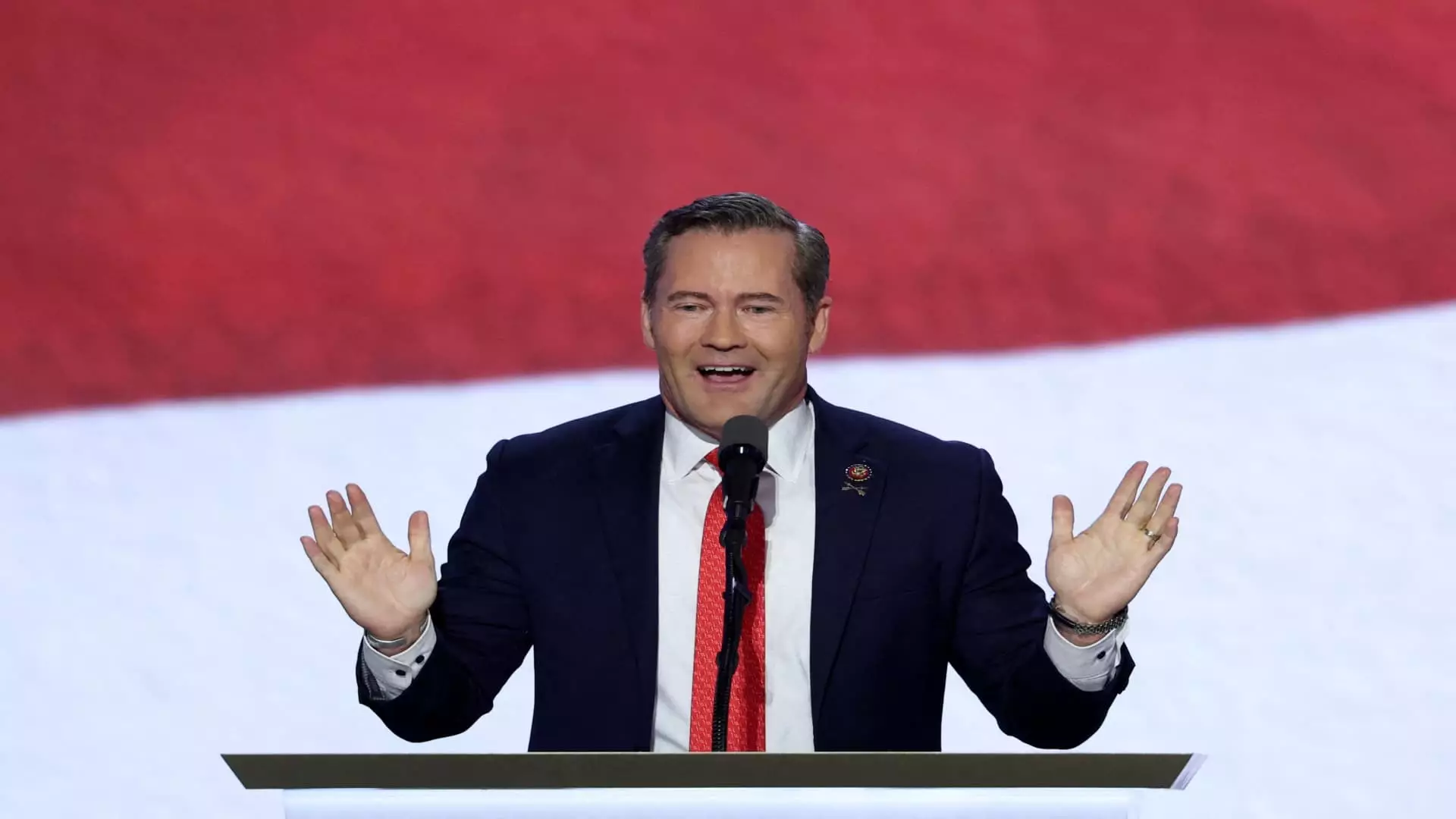The appointment of Rep. Mike Waltz, R-Fla., as national security adviser by President-Elect Donald Trump marks a pivotal moment in the incoming administration’s approach to international relations and defense policy. With a background as a Green Beret veteran and extensive experience in conflict zones such as Afghanistan, the Middle East, and Africa, Waltz embodies a blend of military insight and legislative acumen that could shape the nation’s security framework.
Having represented his Florida district in Congress since 2019, Waltz is not only a combat veteran but also an active member of key congressional committees, including Armed Services, Foreign Affairs, and Intelligence. This dual perspective positions him uniquely to navigate the complexities of current global threats while advocating for U.S. interests. His selection, first reported by The Wall Street Journal, reflects Trump’s inclination towards candidates with military experience and those who have demonstrated a strong commitment to a hawkish foreign policy.
One of Waltz’s notable positions in Congress has been his outspoken criticism regarding China. As a member of the House’s China Task Force, he has been a proponent of a robust American response to what he perceives as rising threats from the Asian superpower. Waltz contends that the U.S. is inadequately prepared to confront potential conflicts in this region, advocating for stronger military readiness and strategic posturing.
Under Waltz’s advisement, it is expected that the Trump administration will adopt a more aggressive stance toward China. This potentially sets the stage for heightened tensions in U.S.-China relations, particularly in the context of trade, technology, and military presence in the Asia-Pacific region.
Controversial Views on Ukraine
Waltz’s approach to international conflict is further illustrated by his contentious views on the U.S. support for Ukraine amid its struggle against Russian aggression. Recently, in an interview with NPR, he articulated the belief that the U.S. possesses “leverage” to encourage Russian President Vladimir Putin to negotiate a diplomatic resolution, a statement that could stir debate about America’s role in foreign conflicts.
Many congressional Republicans share Waltz’s skepticism towards blind military aid, calling for a more calculated strategy that balances support with diplomatic efforts. This perspective may influence how the administration engages with both allies and adversaries as the global landscape continues to evolve.
Waltz’s selection as national security adviser, a position that bypasses Senate confirmation, signals a commitment by the Trump administration to prioritize defense strategies that are aggressive and firmly rooted in military experience. The appointment of another House Republican, Rep. Elise Stefanik, as U.N. ambassador further emphasizes this trend within Trump’s administration, suggesting a cohesive approach to national security that aligns with the Republican agenda.
As the world faces new and enduring challenges, the effectiveness of Waltz’s strategies and policies in this pivotal role will undoubtedly influence U.S. security and foreign policy. His leadership may serve as a barometer for the administration’s broader political philosophy in navigating international relations and conflicts in the years to come.


Leave a Reply